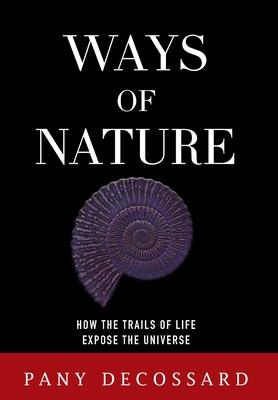In Ways of Nature, Dr. Dcossard articulates the first theory of evolution since Darwin. By his own account, he stumbled upon his proposed mechanism of eukaryogenesis using a process worthy of the three princes of Serendip. From there, he succeeded in establishing a comprehensive theory of life and the universe. For instance, we learn that a new paradigm, called " the seeds-first theory," explains biodiversity among eukaryotes. It is interesting to find out what contributions, if any, the theory of natural selection has made to the new model. Nevertheless, neo-Darwinism - the modern version of Darwinism - has long been engaged in a major antagonism with the theory of Intelligent Design (ID), which holds that the living world emanated from the conscious choice of a designer rather than chance events. In any case, the author will be the first one to admit that the new model of evolution delineated in this opus is not born out of the crisis that is currently rocking neo-Darwinism, a crisis sparked by the assaults of many thinkers and scientists, including those of the ID movement. He is also quick to reveal how little he knew about the standoff between the two main protagonists in the crisis of natural selection theory before he began work on this book, cloistered as he was, both literally and figuratively, within the confines of emergency rooms caring for the sick and injured.
In Ways of Nature, Dr. Dcossard explores the paths taken by life since its apparition and shines a bright spotlight on its destiny and the fate of the universe. In so doing, he also identifies the connections between the living and the nonliving and opens our eyes to novel ideas about physical phenomena whose conventional descriptions we thought were settled. Ways of Nature is undoubtedly a landmark publication. It is indeed a paradigm shift la Kuhn in our understanding of life and its evolution.
